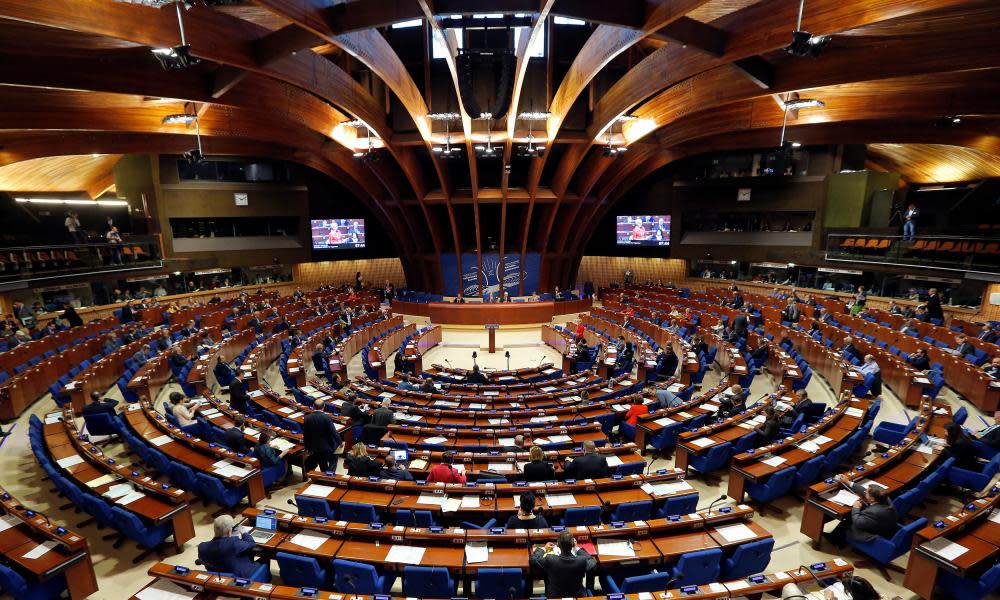Council of Europe vote puts pressure on Turkey over human rights

One of Europe’s leading human rights bodies has put Turkey back on a watchlist over “serious concerns” about democracy and human rights, putting pressure on the EU to reassess relations with Ankara.
The parliamentary assembly of the Council of Europe (Pace) voted to restart monitoring Turkey, a process it had relaxed in 2004 when it intended to pave the way for it to begin accession talks with the European Union.
The Council of Europe, co-founded by Winston Churchill in 1949, is a separate body from the EU, but its decisions are closely watched in Brussels. EU foreign affairs ministers are due to discuss EU-Turkey relations on Friday for the first time since Recep Tayyip Erdoğan eked out a narrow victory in a referendum that granted him sweeping new powers as president.
The unprecedented decision to reinstate monitoring of a Council of Europe member triggered a furious reaction from the Turkish government, which said the “unjust” move was motivated by xenophobia and Islamophobia.
Ankara, one of the council’s oldest members, said it was now reconsidering its relations with the body. “Deciding to reopen the monitoring procedure on Turkey ... under the guidance of malicious circles at the Pace is a disgrace to this organ, which claims to be the cradle of democracy,” a Turkish government statement said.
MPs in the assembly concluded the contest took place on an “uneven playing field”, endorsing the verdict of observers from the Organisation for Co-operation and Security in Europe, who said the referendum had fallen short of democratic standards.
The resolution said the Turkish government had overstretched the state of emergency law introduced after last July’s coup, with “ruling through decree laws going far beyond what emergency situations require and overstepping the parliament’s legislative competence”.
MPs also raised concerns about Erdoğan’s promise to discuss reintroducing the death penalty, a move they stressed would be incompatible with Turkish membership of the Council of Europe.
Being monitored by the Council of Europe means Turkey will be subject to frequent visits by human rights officials and debated more often in the Strasbourg chamber. The resolution was passed with 113 votes, with 45 against and 12 abstaining.
Nine other Council of Europe countries are subject to this kind of monitoring: Albania, Armenia, Azerbaijan, Bosnia and Herzegovina, Georgia, Moldova, Russia, Serbia and Ukraine.
Kati Piri, a Dutch Labour MEP who specialises in EU-Turkey relations, said the EU would have to reassess its position on Turkey. “The time just to wait and hope things will get better … that strategy has to be abandoned and a clear statement has to be made from EU leaders.”
She said she was pushing for the EU to freeze Turkey’s EU accession talks, rather than abandon them altogether. “If Turkey would meet the criteria that road would be open,” Piri said. “But this government has proved it has no willingness to move closer to the EU, so that is why I am calling for a suspension.”
The Council of Europe decision came after tumultuous scenes at the Strasbourg assembly, where its own credibility as a champion of human rights was called into question.
Pedro Agramunt, the Spanish senator who leads Pace, told MPs on Monday he had made a mistake by meeting Syrian president Bashar al-Assad last month, while the assembly is expected to back calls for an independent inquiry into allegations of cash for votes said to have neutered criticism of the authoritarian regime in oil-rich Azerbaijan.

 Yahoo News
Yahoo News 
